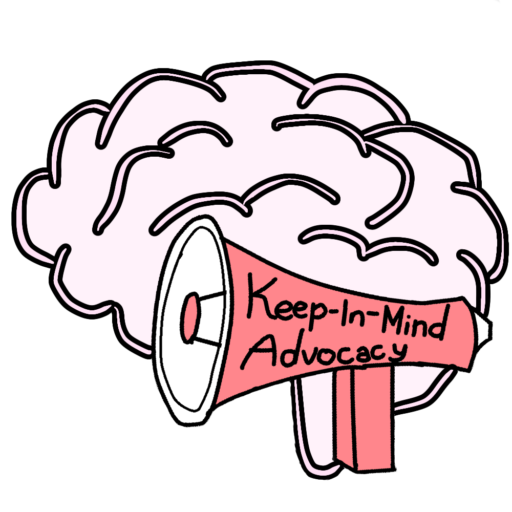DISCLAIMER. As always, this is an opinion piece. Unless stated by a source, all information is opinion based. If you see any medical advice attached to this, consult your doctors. What may work for someone else, could be potentially dangerous to you.
In modern society, socializing has become a key part of human needs. Some people need less socialization, while some humans require more. Humans are indeed a social species, that relies on other members for support [1]. In terms of creating new ideas, and working together as a team, some humans flourish more in groups or independent environments. The importance of teamwork ties back to the brain.
“The past few decades have produced important advances in our understanding of how the brain regulates emotion and cognition. In comparison, research on the neuroscience of human social behaviour is a relatively neglected topic in spite of the importance of social interactions for mental health. In this editorial, I give examples of some of the experimental approaches that have been used to study the neural substrates of human social behaviour in the hope that this will stimulate more researchers to become involved with this fascinating and important topic.” Based on evidence from a study on “The Neurobiology of Human Social Behavior…” [1], socialization and interaction contribute to mental health and work to regulate emotion and cognition. In cognitive brain functions, socialization trains the brain to adapt to uncomfortable situations. According to McGill University [2] and a study on the “Adaptation of Brain Functional and Structural Networks in Aging” [3], the prefrontal cortex is responsible for the “precision to adapt to particular situations on the basis of information provided by the senses.” When linking this information to socialization and teamwork, one can see why working in a group setting can be resourceful.
The prefrontal cortex is necessary for the human mind, and is strengthened by teamwork and socialization. According to a study on “The Role of the Medial Prefrontal Cortex in Social Categorization” [4], “Group membership is an important aspect of our everyday behavior. Recently, we showed that existing relevant in-group labels increased activation in the medial prefrontal cortex (MPFC) compared with out-group labels, suggesting a role of the MPFC in social categorization. However, the question still remains whether this increase in MPFC activation for in-group representation is solely related with previous experience with the in-group.” The study discusses an experiment run on participants, to see how working as a team affected them in the long run, in a sports-like setting. These findings included increased confidence, a feeling of security, and how humans enjoy categorization and “labelling”. In terms of medical findings, teamwork is an extremely important part of encouraging and strengthening the prefrontal cortex.
Teamwork can be beneficial in many ways and can be displayed in everyday life. Working with a group of people to solve a problem and creating inventive ideas to achieve goals. Another example of teamwork, is a team on a soccer team, playing to win, and working together to achieve goals. Both examples share the common theme of socialization and communication. As stated on McGill’s website on lessons in Neuroscience, “The decision to pick up a glass of water is accompanied by increased electrical activity in the frontal region of the cortex. The neurons in the frontal cortex then send impulses down their axons to activate the motor cortex itself.” This displays individual communication, but changes in group settings. These two examples are important to think of as individual communication is something that needs to be encouraged, as does group communication. Characteristics required in career teamwork and physical recreation games include honesty, positivity, promoting diversity and communication, and critical thinking. This all ties back to the social aspect all humans require. Each of these dimensions includes adaptation, which strengthens the prefrontal cortex.
The importance of strengthening the prefrontal cortex lies in adaptation. As times are unsteady, adaptation becomes more important and necessary. Teamwork is one of the most important ways to strengthen this part of the brain. As teamwork can be found by working in a career-type setting or a sports-type setting, these pieces encourage honesty, positivity, promoting diversity and communication, along with critical thinking. More research on these topics, individually, has been coming out recently, however, it seems that what is lacking, is the combination of teamwork and neuroscience.
Resources:
[1] Young, Simon N. “The neurobiology of human social behaviour: an important but neglected topic.” Journal of psychiatry & neuroscience : JPN vol. 33,5 (2008): 391-2. Accessed Nov. 18, 2022.
[2] “THE BRAIN FROM TOP TO BOTTOM.” Le Cerveau à Tous Les Niveaux, thebrain.mcgill.ca/flash/d/d_06/d_06_cr/d_06_cr_mou/d_06_cr_mou.html. Accessed Nov. 18, 2022.
[3] Lee, Annie et al. “Adaptation of brain functional and structural networks in aging.” PloS one vol. 10,4 e0123462. 15 Apr. 2015, doi:10.1371/journal.pone.0123462. Accessed Nov. 18, 2022.
[4] Molenberghs, Pascal, and Samantha Morrison. “The role of the medial prefrontal cortex in social categorization.” Social cognitive and affective neuroscience vol. 9,3 (2014): 292-6. doi:10.1093/scan/nss135. Accessed Nov. 18, 2022.


Comments are closed